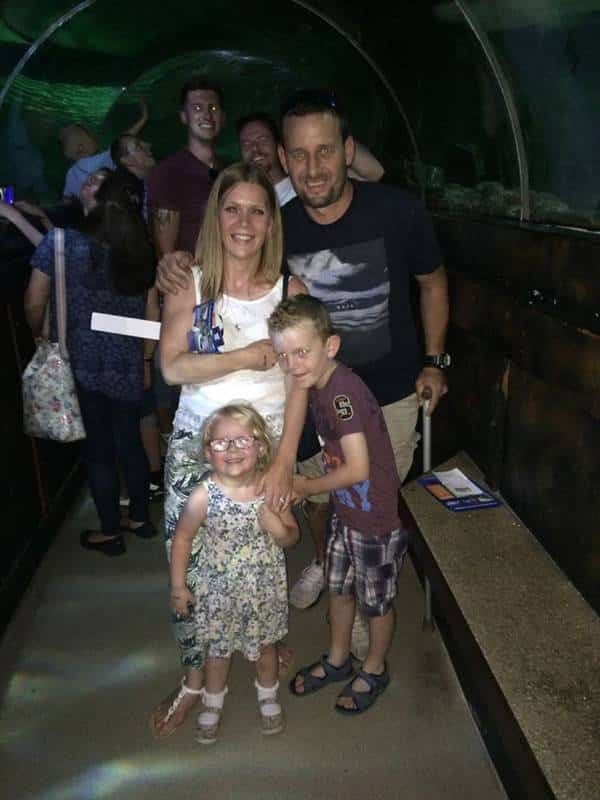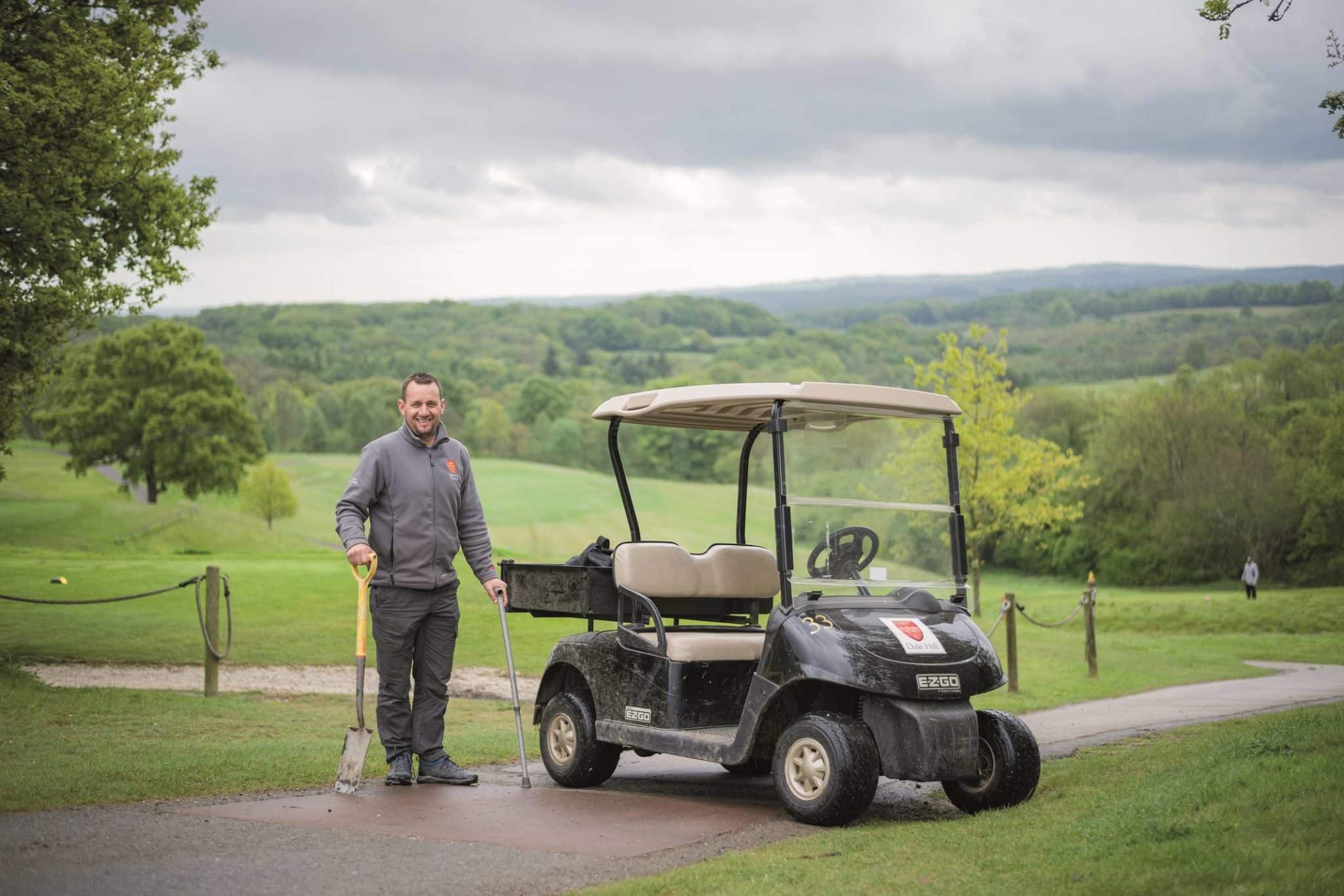NEIL DURRANT was a healthy, active thirty-something who went to bed with flu symptoms four years ago – and next morning found himself paralysed.
He had been struck down Acute Disseminated Encephalomyelitis (ADEM), which causes inflammation of the brain and spinal cord.
It took a month in intensive care before the father of two from Maidstone could move his fingers.
It took longer for him to be able to eat and drink, see properly and talk again. After a year he was able to walk with the aid of crutches.
The course manager and head greenkeeper at Dale Hill Golf Course in Ticehurst, Neil finally feels that he can see the light at the end of the tunnel. But it has been slow, painstaking progress.
Neil, now 41, says: “It’s a very rare condition, six people in every million get it. I’ve had quite a few case studies done on me, which is interesting.”
The memories are still vivid. “I remember that I couldn’t move my lower limbs at all,” he recalls. “My wife Lisa-Marie, who was eight and a half months pregnant at the time, couldn’t help me so my brother had to carry me down the stairs and take me into Maidstone Hospital.
“They wanted to do an MRI scan but because it was Sunday the scanner wasn’t working. So they blue-lighted me to King’s Hospital, the ambulance rushing through central London.
“That was 10pm on Sunday night. I woke up again on Tuesday and I was completely paralysed and on a life support machine. I couldn’t talk or see, I had chronic double vision.”

For two weeks doctors had no idea what was wrong with him. Finally they worked out that he had contracted the rare disorder after he had mumps.
However, there was a ray of light amid all the gloom. On June 19 2013, staff at the London hospital sent him back to Maidstone, where they strapped him into a wheelchair and took him to Pembury Hospital in an ambulance so he could attend the birth of his daughter Phoebe.
“They made sure I was there. I could move my hands but it was very slow. I took my newborn child in my arms and the staff helped me to hold her.”
Neil was not dispirited by his predicament. “It was kind of surreal. People kept saying to me, ‘It must have been horrendous’ but it wasn’t like that.
“I wasn’t scared – but it was bizarre. They told me I should make a full recovery so I kept telling myself, ‘You’ll be alright in a couple of weeks’.
Unlike many of the people he has met who have suffered similar experiences, he is fortunate in that he has an optimistic outlook. “I’m a positive person, strong-minded. I don’t let anything get me down, I’m sure that I’m going to get better.”
‘I took my newborn child in my arms
and the staff helped me to hold her’
He found he had no problem driving after a year, which enabled him to get back to work after being stuck in the house for so long – ‘that was a massive life change’.
But he admits: “Family life had been difficult. My wife has had to do a lot. She had to lift me in and out of the bath. I couldn’t carry my second child around or look after her.
“But my wife’s a strong person like me and we’ve got over the worst of it. Now Phoebe’s nearly four and she can largely look after herself.
“I don’t let it stop me though, I can pick the kids up from school and nursery now, and I can still take my seven-year-old son Finlay to football practice.
“It’s a long walk and he runs on ahead of me, but mentally that’s been very good for me too. That’s what you want to do when you’re a new father.”
It has not been a case of gradual improvement, however, since progress has faltered after the initial recovery.
“I got on really well for two years but the last two have been really slow. The consultant told me last month that he had done all he could for me.
“I was on 29 pills a day for a year because my muscles were very tense, and I’ve managed to get that down to six. But I still ache chronically every day, like someone who goes for a jog after six months of not running.”
Four years on, he still finds it hard to move. He can walk ten metres in 10.97 seconds – when he came out of hospital it took him 32 seconds.
“I used to play football, I was a six-handicap golfer, I was a normal physical young man,” he said. “I’ve got my handicap back down to 13 but I have to stand with my feet together because I’ve got no balance.
“I’m a competitive guy. I couldn’t play football or tennis or badminton any more, but I wanted to do something so I started playing snooker.
“I’ve adapted my game, I use the rest more than other players and I have to take time over my shots to make sure I’m balanced.
“Snooker has helped me mentally. It put me back on a level playing field where I can’t be with other sports.”
And he is still keeping the greens and fairways of Dale Hill in pristine condition amid the club’s stunning surroundings. “Work has been good to me. Someone very sweetly said to me the other day, ‘we don’t see you as being disabled’.
“I’m getting better every day, physically and mentally. I’m getting stronger – just not much faster.”








